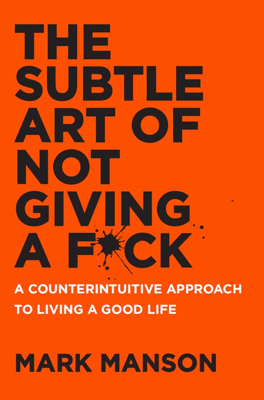Summary
Mark Manson's The Subtle Art of Not Giving a F*ck challenges the conventional self-help narrative by emphasizing the importance of understanding what to care about and what to dismiss. Drawing inspiration from Charles Bukowski's indifferent pursuit of success while embracing his flaws, Manson advocates for authenticity and the recognition of one's limitations.
Central to Manson's philosophy is the differentiation between indifference and the selective allocation of concern, suggesting maturity involves discerning trivial issues from those that align with personal values. This perspective critiques the constant push for perpetual happiness and improvement prevalent in modern society, pointing out that this only leads to dissatisfaction and a 'Feedback Loop from Hell.'
Manson posits that true contentment comes from engaging with and solving life's inevitable problems rather than seeking a problem-free existence. Happiness, he argues, is a dynamic process that emerges from our responses to challenges. By embracing the struggles and understanding the role of suffering and failure, individuals can grow and redefine what success means for them.
A recurring idea throughout the book is that emotional and psychological discomfort is a guide, not a deterrent. This point is illustrated through stories of individuals like Hiroo Onoda, who found purpose through enduring hardship, and William James, who took radical responsibility for his life's direction.
Manson also emphasizes the value of rejecting societal expectations and the courage to choose one's battles wisely, advocating for commitment over avoidance and selective engagement rather than scattered attention. He illustrates how embracing rejection and setting boundaries is crucial for healthy relationships and personal development.
Ultimately, Manson's stark, forthright guide urges readers to scrutinize their values, make conscious choices about where to invest their care, and accept life’s inherent struggles, thereby finding genuine fulfillment and personal growth.
